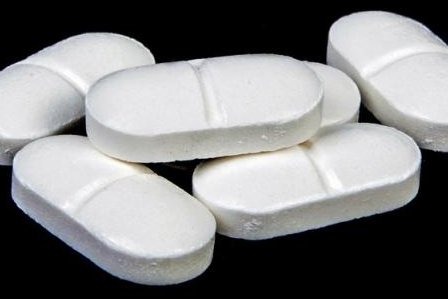Low-dose aspirin may not reduce risk for heart disease in African-Americans, study finds. Photo by PublicDomainPictures/Pixabay
Dec. 11 (UPI) -- For decades, taking low-dose aspirin daily has been considered a safe and effective way of reducing risk for heart attack, stroke and heart disease.
Now, the findings of a new study are calling this assumption into question -- at least among certain racial and ethnic groups.
In research published in the Journal of the American Heart Association, low-dose aspirin -- or 81 milligrams, equivalent to "baby aspirin" -- was not found to reduce the risk for heart attack among African-American adults.
The study also found that African-Americans were less likely than white adults to adhere to daily aspirin therapy.
"Most available data shows that African-Americans have a higher risk of having a heart attack, stroke or other heart diseases compared to whites," study lead author said Rodrigo Fernandez-Jimenez, a cardiologist and researcher at Centro Nacional de Investigaciones Cardiovasculares in Madrid, said in a statement. "However, previous studies didn't include enough black participants to determine if taking a low-dose aspirin for primary prevention of heart disease was useful for this group of people."
The findings of this new study were based on data from the Southern Community Cohort Study, an ongoing project led by Vanderbilt University that is tracking the risk factors for cancer and other major diseases in more than 65,000 between 40 and 79 years of age who live in the southeastern United States.
Most of the participants come from low-income households, and more than two-thirds are African-American. Approximately two-thirds of the study participants were at high risk of having a heart attack or stroke at the start of research, based on the Framingham Risk Score, a commonly used measure that assesses an individuals risk for heart disease over a 10-year period.
In general, the authors found that use of daily, low-dose aspirin in persons without known heart disease was lower among African-Americans than white adults -- with African-Americans approximately 20 percent less likely to try the approach.
Additionally, taking a daily, low-dose aspirin without known heart disease was not associated with helping African-American adults reduce their risk of a fatal heart attack -- even when the analysis was restricted to people at the highest risk, based on a 10-year risk greater than 10 percent according to the Framingham Risk Score.
The study did show that low-dose aspirin reduced risk for fatal heart attacks among white study participants, particularly among women. However, the authors caution that theirs was an observational study, and thus not designed to prove cause and effect.
The American Heart Association does not recommend taking an aspirin to prevent heart disease without talking with a doctor.
"We think the reason aspirin use did not have a beneficial effect for African-Americans could involve a different genetic response to aspirin therapy and poor control of other risk factors," Fernandez-Jimenez said. "The need to better understand the association between aspirin use, race/ethnicity and socioeconomic status and how these factors play a role in cardiovascular disease are important in light of these findings."















